Did you know that rents in Charlotte’s financial district have surged by over 20% in just three years , outpacing the national average? If you’re considering renting in Charlotte Financial District , navigating Uptown Charlotte’s vibrant—but competitive—rental market is crucial to securing your ideal space. This guide demystifies current prices, layout options, and strategies so you can find a rental home that fits both your lifestyle and your budget. Whether you want modern amenity spaces with ease or simply hope to keep up with upcoming resident events , we’ll show you how to thrive in one of North Carolina’s most dynamic neighborhoods.

Revealing the True Cost: Renting in Charlotte Financial District Today
The heart of Charlotte, particularly its financial district in Uptown, commands some of the city’s highest rents . Average monthly costs for a one-bedroom apartment typically fall between $1,700 and $2,600 , with penthouse or deluxe floor plans easily surpassing $3,000. This pricing reflects not only the premium location but also the high demand for quality housing that’s within walking distance to Fortune 500 headquarters, world-class dining, and vibrant nightlife. For many renters, understanding what impacts these prices—amenities, building age, floor plan size, and proximity to work—can set realistic expectations and help guide decisions for their next move in Uptown Charlotte.
While some might balk at these rates, it’s important to recognize that you’re also paying for a unique urban lifestyle. Exclusive neighborhood perks like convenient service bookings , easy access to amenity spaces , and the ability to engage with your community through upcoming resident events greatly enhance the renting experience for those living in the district. Demand remains strong, so acting fast and having your paperwork ready will ensure you don’t miss out on top spots.
"Rents in Charlotte’s financial district have increased by over 20% in the last three years, outpacing national averages."
Understanding the Rent Landscape: Uptown Charlotte & Financial District
When comparing renting in Charlotte Financial District to other neighborhoods, it’s clear that Uptown’s blend of luxury, convenience, and connectivity comes at a premium. Nearby areas—like NoDa, South End, and Plaza Midwood—offer more modest rents but often lack the immediate access to banks, high-profile employers, and signature amenity spaces associated with the financial district. For many professionals, this trade-off is worthwhile: residing close to work translates into significant daily time savings, while living at the city’s social epicenter makes it easy to stay in the loop with upcoming resident events, networking opportunities, and exclusive neighborhood perks that are the hallmark of Uptown living.
The rental market in uptown Charlotte is also defined by a variety of property types, from sprawling high-rises with floor-to-ceiling city views to more intimate boutique apartments. Unlike the vast single-family homes or student-heavy complexes found in outer districts, most Uptown rentals are modern, security-optimized, and loaded with amenities such as on-site gyms , rooftop lounges , and easy-to-use service booking systems for reserving amenity spaces. Understanding this landscape is key to setting your priorities and negotiating effectively.
Key Differences Between Rent in Uptown and Other Charlotte Neighborhoods
The contrast between rent in Uptown and other neighborhoods is striking. Uptown is primarily tailored for professionals desiring city living, with properties offering modern floor plans , in-building maintenance, and 24/7 security. In contrast, nearby neighborhoods like East Charlotte cater to families and students with more varied floor plans, single-level apartments, and considerably lower rents. This centralization of luxury and business in Uptown means renters pay not just for square footage, but also for enhanced security, resident events , and a streamlined lifestyle where tasks like pay rent and submit maintenance requests can be managed with apps and online portals.
While outer districts sometimes offer larger units for the same or less cost, they rarely deliver the same caliber of exclusive amenities, vibrant social scenes, or instant access to public transport and top employers. Choosing between Uptown and elsewhere in Charlotte requires weighing these lifestyle preferences against your monthly housing budget.
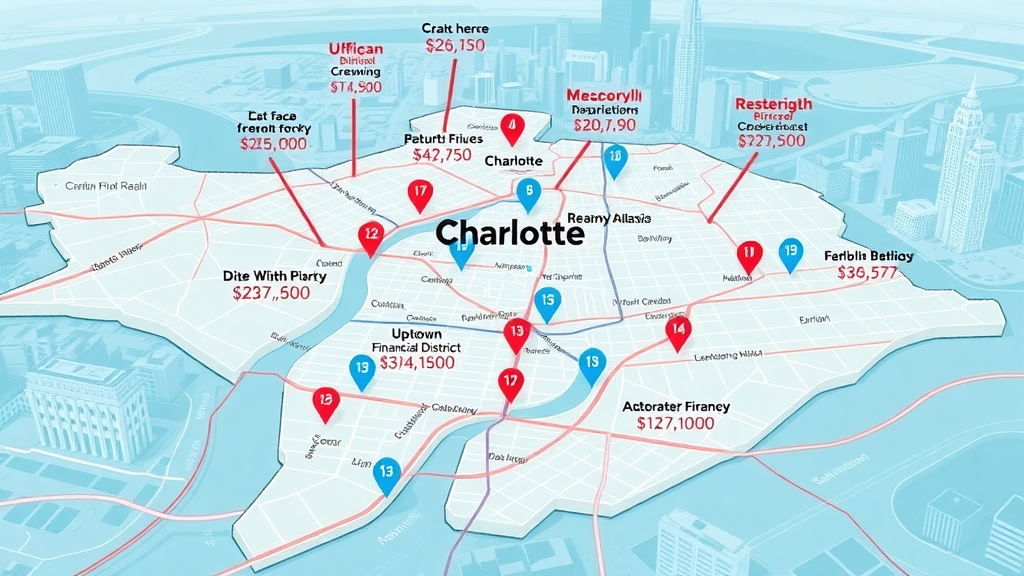
Comparing Floor Plans: Rental Options in the Charlotte Financial District
In the Charlotte financial district, you’ll find a diverse range of floor plans designed to accommodate different needs and lifestyles. Studios offer flexible, open-concept living for those on the go, while one-bedroom apartments provide well-defined private and entertainment areas. Two- and three-bedroom units appeal to roommates and professionals who desire dedicated workspaces or guest rooms. Many new properties in uptown Charlotte also offer specialty units—think lofts with panoramic city views or multi-story penthouses with luxury amenity access.
The focus on floor plan variety allows prospective renters to select spaces that prioritize their needs, whether that's dedicated home offices, extra storage, or open entertaining kitchens. When exploring Uptown options, prioritize floor plans offering access to amenity spaces with ease —these often include features such as in-unit laundry, walk-in closets, and balconies with sweeping city vistas, ensuring your living experience is both functional and inspiring.
| Area | Studio | 1-Bedroom | 2-Bedroom | 3-Bedroom |
|---|---|---|---|---|
| Uptown Charlotte / Financial District | $1,400–$1,800 | $1,700–$2,600 | $2,200–$3,000 | $3,000+ |
| South End | $1,200–$1,500 | $1,400–$2,000 | $1,800–$2,700 | $2,700–$3,300 |
| East Charlotte / University City | $950–$1,200 | $1,100–$1,500 | $1,300–$1,900 | $1,900–$2,400 |
Essential Tips for Choosing the Right Floor Plan When Renting in Charlotte Financial District
Selecting the ideal floor plan involves more than just counting bedrooms—it’s about fitting your unique lifestyle. Start by considering how much space you realistically need: frequent entertainers may prefer open, integrated kitchen-living layouts, while work-from-home professionals might need a bonus room or nook for an office. Next, prioritize proximity, ensuring your apartment is close to your workplace or preferred transit routes in uptown Charlotte.
Building amenities and neighborhood security can drastically affect your daily experience, so review what's included—from doorman services to rooftop lounges. Carefully evaluate multiple floor plans for their functionality: Does the unit maximize usable space? Are storage and parking included? Is there a balcony, or quiet communal space for relaxation? By being intentional with your selection, you’ll secure a home that’s not only comfortable but also enhances your Uptown lifestyle.
- Assess your lifestyle and space needs
- Prioritize proximity to work and amenities in uptown Charlotte
- Examine building amenities and neighborhood security
- Research floor plans for optimal functionality
Step-by-Step Guide: How to Find the Best Rent in Uptown
Navigating the Uptown Charlotte rental market efficiently requires strategic planning. Start with online listing platforms and real estate apps—these tools let you filter options by price, floor plan , and amenities, giving you a bird's-eye view of market availability. Compare options side by side to identify properties that meet your needs. Don’t hesitate to contact multiple leasing offices, as properties in the financial district often fill quickly, and personal tours may reveal details not shown in online photos or virtual walkthroughs.
Once you’ve narrowed down your search, act fast by preparing documents in advance, such as proof of income, photo ID, and references. In many Uptown properties, you can pay rent and submit maintenance requests through digital resident portals, ensuring a convenient move-in experience. Remember to ask about move-in incentives, special rates for longer leases, or waived application fees—these perks can result in substantial savings.

Best Time of Year to Secure a Rental in Charlotte’s Financial District
The rental market in Charlotte’s financial district fluctuates throughout the year, peaking in spring and summer when new professionals flock to the area. If flexibility allows, consider searching in late fall or early winter: during these off-peak times, you’ll face less competition and may even lock in better rates or move-in incentives. Leasing agents are especially motivated to fill vacancies after peak season, potentially giving renters more negotiating power regarding floor plans and monthly costs.
Planning your move in advance ensures you have first pick among available units and floor plans. This timing strategy also lets you find the best position—high-rise living with panoramic views, or a cozy, quieter corner apartment that fits your specific needs. Whatever your preference, timing your application right can help you land a coveted uptown address at a reasonable rate.
Leverage Online Tools and Local Agents for Floor Plan Comparisons
Technology has made it easier than ever to explore exclusive neighborhood perks and compare floor plans without leaving your home. Start with trusted platforms such as Zillow, Apartments.com, and RentCafe to scan Uptown Charlotte’s inventory. These platforms enable you to filter by floor plan type , price, pet policies, and amenity offerings, allowing you to create a shortlist before scheduling any tours.
Don’t overlook the power of local real estate agents, especially those specializing in corporate or executive relocations in Uptown Charlotte. They can alert you about upcoming resident events, off-market listings, or specialty amenity spaces not available to the public online. Working with a knowledgeable agent means you’ll stay in the loop with upcoming resident events, maintenance requests seamlessly handled, and an edge in securing high-demand units.
The Pros and Cons of Renting in Charlotte Financial District and Uptown Charlotte
Renting in the heart of Charlotte’s financial district offers a blend of prestige, walkability, and lifestyle perks—yet it’s not for everyone. The main advantages are the prime location, with easy commutes to banks, major employers, and nightlife. Luxury properties in the area also feature state-of-the-art amenities, rapidly resolved maintenance, and active community engagement through events and networking opportunities. Plus, living here means you can reserve amenity spaces with ease , often using a convenient resident app.
Counterbalancing these perks are the area’s notably higher average rental prices, occasional traffic congestion, and potential noise—especially if you’re in the heart of the nightlife district. While the convenience of engaging with your community and exclusive access to resident events are major bonuses, those sensitive to city activity or on a tighter budget may prefer to rent in Charlotte neighborhoods further out from Uptown.
- Proximity to banks, employers, and nightlife
- Higher average rental prices than outer neighborhoods
- Access to modern amenities and luxury floor plans
- Potential noise and traffic in the heart of uptown
People Also Ask: Costs, Neighborhoods, and Affordability
How much does it cost to live in a financial district?
The average rent in Charlotte’s financial district ranges from $1,700 to $2,600 per month for one-bedroom apartments, with deluxe floor plans or prime locations in uptown Charlotte exceeding $3,000.
Is rent in Charlotte expensive?
While rent in Uptown Charlotte and the financial district is higher than many suburban areas, it remains competitive compared to other major US cities’ financial districts.
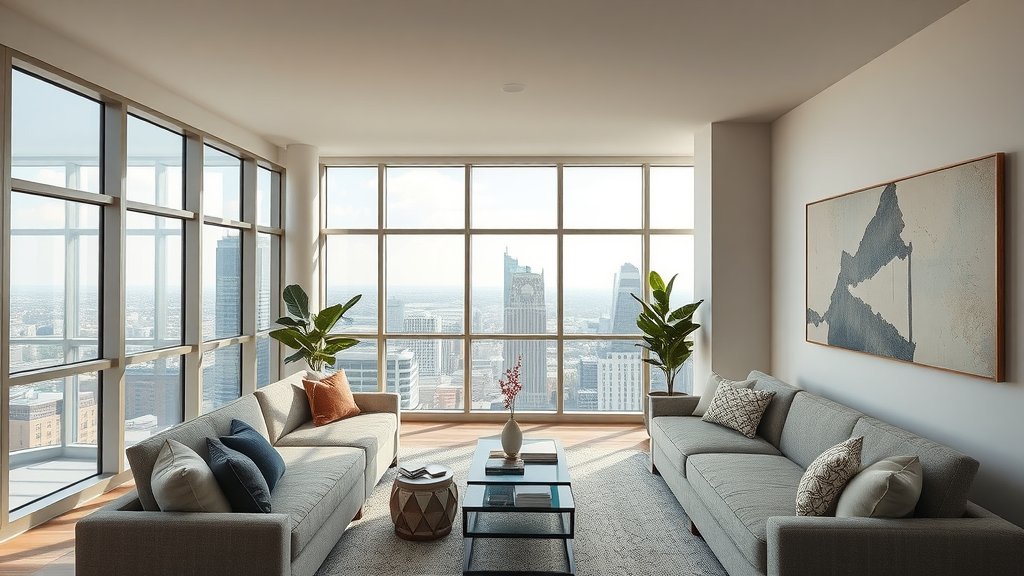
What is the cheapest area to live in Charlotte, NC?
Neighborhoods such as East Charlotte and University City generally offer lower rents and more varied floor plan options compared to Uptown.
What part of NC has the cheapest rent?
Smaller cities such as Gastonia, Concord, and areas outside the Charlotte metro offer the lowest rents within North Carolina.
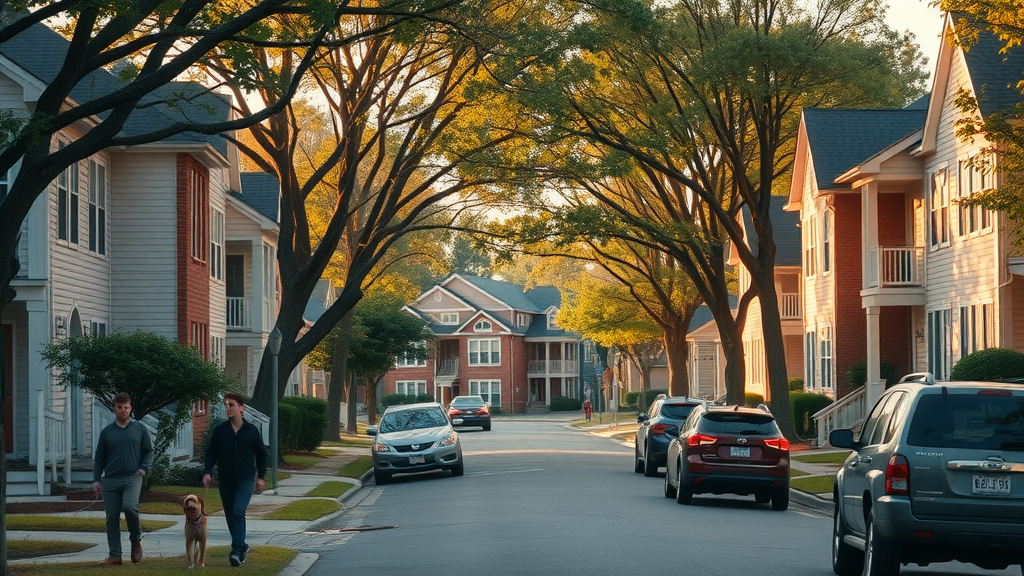
Expert Advice: Smart Negotiation Strategies for Renting in Charlotte Financial District
Renting in Charlotte’s financial district doesn’t mean paying top dollar without recourse. Start your search early, particularly before the busy spring-summer rush, when competition drives up prices. Use your leverage as an early-bird renter to request reduced security deposits or waived application fees. Don’t shy away from negotiating lease terms: inquire about possible incentives, including complimentary parking, fitness center access, or even discounted rent for signing a longer lease.
If you’re flexible on move-in date or lease duration, ask the property manager for off-peak specials or explore exclusive neighborhood perks that could save hundreds over a year. Many buildings in Uptown Charlotte have flexibility—especially if you agree to a 13- or 15-month lease rather than the standard 12. Staying proactive, courteous, and persistent will increase your negotiating power and land you the ideal space at a better rate.
- Start your search before peak season
- Negotiate lease terms and possible incentives with property managers
- Consider long-term leases for better rates in uptown Charlotte

Renting in Charlotte Financial District FAQs
-
What kinds of floor plans are most popular in the Charlotte financial district?
Modern studios, one-bedroom apartments, and two-bedroom luxury spaces make up the bulk of Uptown Charlotte properties, prized for maximizing city views and providing functional living for professionals. -
How do amenities typically differ between properties in uptown Charlotte?
Uptown properties tend to offer high-end amenity spaces—think rooftop terraces, gyms, 24/7 concierge, and pet spas—whereas outer neighborhoods typically offer only basic amenities such as laundry rooms and parking lots. -
Are short-term leases readily available near major financial firms?
Many buildings offer flexible lease terms, including short-term arrangements for corporate relocations or interns, though expect to pay a slight premium for maximum flexibility.
Visual Tour: Video Guide to Floor Plans and Rental Spaces in Uptown Charlotte
For an immersive experience, check out our video walkthrough of Uptown Charlotte’s most sought-after floor plans and luxury amenities. Get a firsthand look at everything from panoramic rooftop lounges to in-unit design features, and discover what makes the financial district a top choice for discerning renters.
Video walkthrough featuring aerial drone shots, interior tours, and scenes highlighting Uptown Charlotte’s luxury amenities.
Video Walkthrough: Comparing Uptown Charlotte Rentals vs. Financial District Options
Watch as we compare Uptown Charlotte rentals to other financial district options, spotlighting differences in floor plans, pricing tiers, amenity access, and resident culture. This comparative video will help you narrow your search and find the best fit for your needs—whether your priority is space, convenience, or exclusive social events.
Side-by-side walk-throughs of Uptown and nearby neighborhoods, highlighting cost, amenities, and resident lifestyle.
Next Steps: Secure Your Ideal Rental in Charlotte’s Financial District
Ready to elevate your Charlotte lifestyle? Use these strategies to select your floor plan, compare prices, and negotiate the best deal in Uptown. Start your search now—and secure your spot among the city’s most exclusive urban addresses.
 Add Row
Add Row  Add
Add 


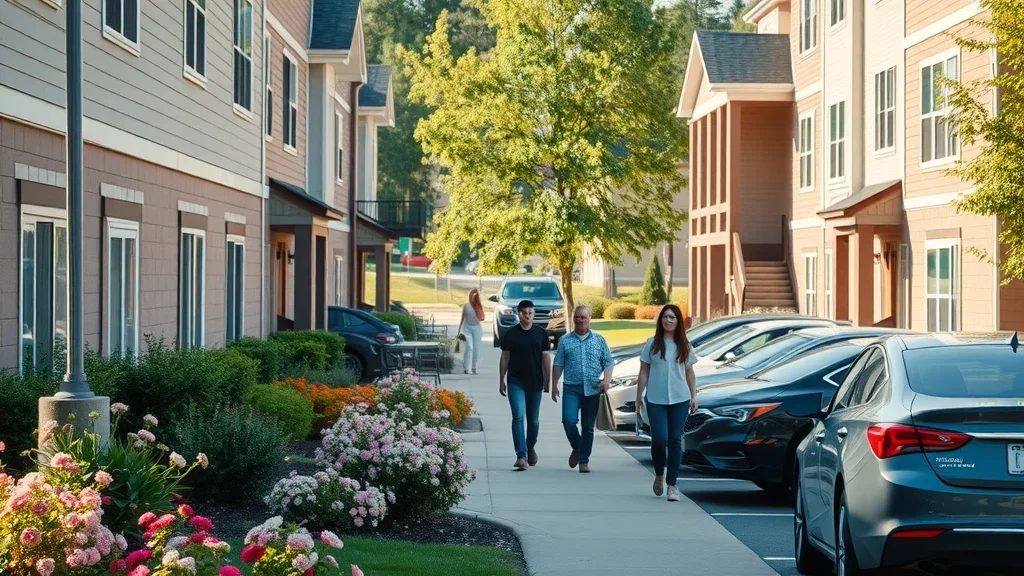
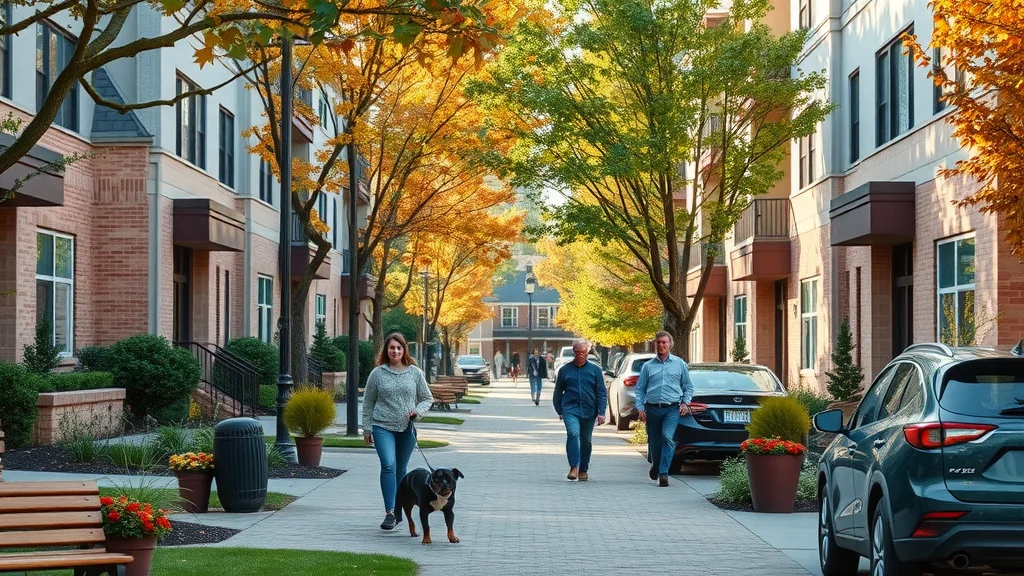
Write A Comment